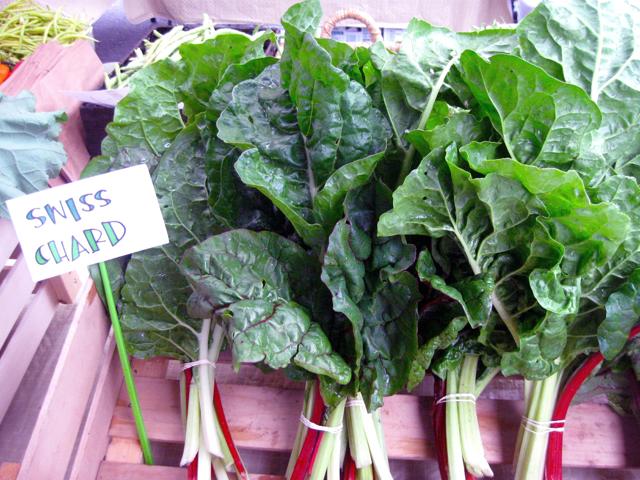Here in the South, collards slow-simmered with a ham hock is a tradition — a staple that soothes and nourishes the soul. But collards aren’t the only local greens up for grabs this month, nor are they the only leafy veggie with a comforting culinary past.
Embracing the green
“Broccoli rabe reminds me of my grandmother,” says Anthony Cerrato, the executive chef and co-owner of Fiore’s Ristorante Toscana, an Appalachian Grown partner restaurant. “She used to make it two or three times a week for my grandfather, who had heart disease.” Recognizing the appeal — or lack thereof — that the healthy green would have for her grandchildren, the Italian matriarch doctored it up a bit. “She’d make it with cavatelli pasta and lots of Pecorino Romano for us,” Cerrato says, who acknowledged his young palate still found it a bit bitter. “We choked it down because we had to eat what was made!”
Now, as an adult chef, Cerrato embraces rabe and another greens often described as “bitter,” such as escarole. “It’s so versatile,” he says. “You can make soups out of it, use it in a salad or sauté it for an entree.” Fork Mountain Farm in Madison County grows escarole for the restaurant. Find it in on their fall menu in classic Italian escarole-and-white-bean soup.
Another chef, Meherwan Irani, who co-owns Chai Pani with his wife, Molly, recognizes that spinach sometimes gets a bitter rep. The green is known as saag and is used in several traditional Indian dishes. Getting rid of any pungent taste is easy, Meherwan assures any finicky eater. “Always cook spinach uncovered,” he emphasizes. “Spinach releases volatile gases during cooking that, if trapped, can make the dish bitter.” Meherwan also advocates blanching before cooking. “Bring heavily salted water to a boil. Boil the greens for a few minutes, and strain. Then, they’re ready to cook!” He adds that classic blanching calls for an almost fifty-fifty salt-to-water ratio, but you can certainly use less. The most important element is the large amount of water, he stresses. That way, “when you add the greens, you don’t lose the boil.”
In addition to spinach, fenugreek leaves (mehti) and mustards (saarson) are common greens used in traditional Indian cooking. While local spinach and mustard greens abound at tailgate markets now, you may be hard pressed to find fenugreek leaves. “They’re similar to mustard — a strong flavor with bite,” Meherwan says. “The leaves can be used fresh (sautéed greens with Indian spices) or dried (powdered and in marinades).” The seeds, perhaps more well known, have a nutty flavor. As a spice, “they’re an essential part of south Indian cooking and are typically roasted, ground into powder or used in pickling.”
Getting the green
Also an Appalachian Grown partner restaurant, Chai Pani sources its produce from Mountain Foods (a local produce distributor working with area farms) and makes frequent trips to nearby markets. One of the restaurant’s popular local greens dishes is saag paneer, or spinach simmered with north Indian spices with cubed farmers cheese. Snag the recipe at right.
In addition to white-bean-and-escarole soup, find local greens in more soups and entrees at Fiore’s. In fact, they have their own farm, Fiore “C” Farms in Fairview, also growing greens from kale to chard. Cerrato says Fiore’s recently changed the menu to reflect the new season. Expect braised short ribs with chard, white beans, a rosemary wine sauce and a drizzle of tomato jam. Also check out their four-seasons pizza with spinach, and another soup: white bean and mixed greens (Cerrato shares his family recipe below).
For a complete list of restaurants featuring greens this month, visit the Get Local page of http://www.asapconnections.org. Learn more about Fiore’s and their offerings at http://www.fioresasheville.com, or call 281-0710. Chai Pani can be reached at 254-4003, or visit them online at http://www.chaipani.net.
Tailgate Trick-or-Treatin’
Fill your bag with the vitamin-packed greens mentioned here, as well as a variety of lettuces. Although Riceville Tailgate Market has closed for the season, the majority of markets remain open with lots more to offer — apples, winter squash, sweet potatoes, garlic, onions, meats, cheeses, baked goods, crafts and lots more. Most tailgates will remain open through the month, with many running through November and into December. Stay tuned to http://www.asapconnections.org and ASAP’s new community website, http://www.FromHere.org, for holiday market dates as they approach. Find a farmers tailgate market near you by searching ASAP’s online Local Food Guide, buyappalachian.org.
— Maggie Cramer is the communications coordinator at Appalachian Sustainable Agriculture Project. Contact her at maggie@asapconnections.org.




Before you comment
The comments section is here to provide a platform for civil dialogue on the issues we face together as a local community. Xpress is committed to offering this platform for all voices, but when the tone of the discussion gets nasty or strays off topic, we believe many people choose not to participate. Xpress editors are determined to moderate comments to ensure a constructive interchange is maintained. All comments judged not to be in keeping with the spirit of civil discourse will be removed and repeat violators will be banned. See here for our terms of service. Thank you for being part of this effort to promote respectful discussion.